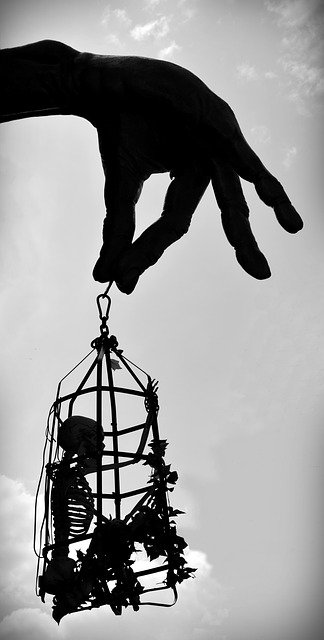How to – a 24 hour fast
 What does it mean to go 24 hours without eating?
What does it mean to go 24 hours without eating?
First the disclaimer that I am not a doctor, nor am I a nutritionist.
Caveat Emptor.
…
Last week a did a 24 hour fast. Let’s walk through it so you can understand what to expect.
First, the big question, why do you care?
The bottom line here is that fasting may be beneficial to you in ways that other nutritional strategies aren’t. Fasting is also an easy way to reboot your nutrition if you’re stuck in a rut.
Fasting has become very popular in the last couple years. It’s a bit non-intuitive. Why would you want to starve yourself on purpose?
The people who believe in fasting will tell you that it has great benefits. Fasting forces the body to use resources it normally wouldn’t. In this sense fasting is said to have cleansing properties.
Fasting stresses the body in ways that the body would not normally be stressed, at least in non-athletes. In this sense fasting is said to create a positive response to these stresses. It therefor makes your system stronger.
I’m not going to promote or detract from all that opinion. You can make your own decisions.
Essentially, for me, it’s another tool in the nutritional tool kit, and a fun experiment.
What are the mechanics of a fast?
Fasting can either be a dramatic restricting of calories or a total cessation of calories for a period of time. Some people like to go multiple days on restricted calories. Some people like to restrict all their calories into a short window during the day.
I simply went 24 hours without any food.
Why? Couple reasons. First, I managed to put on 15+ extra pounds during the last few months of not running. I felt heavy and slow and felt like I needy to do something. And second, I’m working from home, I’m not training for anything so I have the opportunity to fast without any negative impact on my life.
I did check with my nutrition coach and she was very enthusiastic. She’s pro fast. Her recommendation was to pick a day where I didn’t have a lot of activities planned, especially physical activities.
What did I do?
I picked a normal Thursday as my fast day. I ate normally the day before. When I woke up in the morning, I had my normal coffee but no breakfast and then did not eat anything until the next morning’s breakfast.
That’s a 24 hour fast. Technically it’s more like a 36 hour fast because I’m going from dinner to breakfast the following day.
I find it easier to start in the morning like this because your stomach is already a bit fasted and I find there aren’t as many hunger pangs.
The hardest part, which really wasn’t that hard at all, was the first lunchtime. Partly because your body is hungry, but mostly because you have a built-in habit of eating certain times each day. You have these rituals that you need to overcome.
For me I did not find it difficult at all. I just kept working and drinking tea and the day went by quickly, with very little hunger.
Some people will experience energy loss or mental fuzziness when they fast. Others claim to experience a mental sharpness. I had very little of either. I felt fine. My head got a little fuzzy in the afternoon, but I was still able to work and focus just fine. I even read before bed.
I fell asleep. I slept well. No issues.
Why was it so easy for me to go a day without eating? I believe the impact that this type of fast will have on you is related to your conditioning and your existing diet.
Let me explain.
What happens to your body when you fast? Your body burns through all the free glycogen available and then has to turn to other sources of fuel. Primarily it turns to burning fat.
If this sounds familiar it’s because it is the same thing that happens to you on a long run. It’s when you hit the wall.
People who have a high carbohydrate diet will really feel that transition to fat burning. They may feel a big energy loss and get very fuzzy headed.
On the other hand, someone with a lower carbohydrate diet, who has practice burning fat for energy won’t feel the transition much at all.
And that is my experience. I can only theorize that because I’m relatively fat adapted and have a reasonably clean, low carb diet already the fasting is normalized for my body.
What was the end result for me?
I had no problems or discomfort during my fast day. I got up early, walked the dog and went for a 20-mile bike ride after work in the afternoon. I had plenty of energy and my head was clear. I went to bed and slept well.
I know you are interested in the big question: “How much weight did you lose?” I immediately lost 5 pounds. But, much of that was just my digestive track cleaning out.
It took 2 days to get back on my normal cycle, if you know what I mean. The actual weight loss is probably 2-3 pounds. Which is significant, I guess, for 24 hours.
On the following morning I simply resumed my normal diet, in this case with my avocado toast and coffee. There was no re-entry discomfort or problems with digestion. I returned to my normal healthy diet and got on with living.
Regardless of the weight loss I felt awesome the next few days. I felt lighter and leaner and noticed the change in my body. It was a real positive.
I also got that psychological boost that you get from doing hard things. It was like completing a hard workout. You know that feeling of accomplishment?
I’ve been short on wins lately with my knee giving me problems and lots of other stresses. The ability to execute the fast so successfully was a positive.
Summary is that, for me, the 24 hour fast was a positive experience. It’s another tool in my nutritional toolkit that I can draw on when I need it. Something that I can work into my schedule when I’m not training hard to keep me focused and give me a win.
As athletes we have to choose a time in our lives where a fast fits. Like when you have a lull in your training, or you need a quick boost.
It’s up to you whether you want to add this practice to your toolkit. But the 24 hour fast is a simple way to test out how it affects you without much risk.

